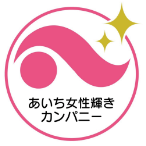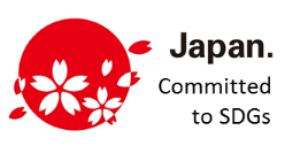- 2018.11.09
- Blog/ブログ
新たな産学連携に向けて
グローバル愛知のミッションは産官学連携なくして達成不可だと思っております。というのも、留学生の就職支援にまつわるすべてのステークホルダーに協力し同じ方向に向いてもらえばこそかつてない結果を生み出すことができるからです。その一歩として、グローバル愛知は県内で留学生をもっとも多く抱えている名古屋大学とのタイアップを通して新たな産学連携プロジェクトを展開しています。At Global Aichi, we believe that our accomplishing our mission is unrealistic without the combined efforts of industry, universities, and local administration. Indeed, it is only through the cooperation of these different bodies working in unison that we achieve formerly impossible results. As a first step in that direction, Global Aichi is coordinating with Nagoya University, which has the most international students of any university in Aichi, on a new project that seeks to better link universities and Japanese companies.

グローバル愛知はコーディネーターとして、名古屋大学と丸菱工業㈱の協力プロジェクトに携わっています。当プロジェクトは「インターナショナル・ビジネス・コミュニケーション」という講座の中で、11月から12月の半ばまで開催します。概要は、丸菱工業㈱が福祉商品の海外販売を目指す中で、名大の留学生と一緒に海外マーケティング戦略を立てることです。日本人を含めて25名の学生が参加しており、ドイツ、インドネシア、モンゴルや韓国など、多様なバックグラウンドをもつワークチームを成しています。As the coordinator, Global Aichi is facilitating this project with Nagoya University and Marubishi Industry Co., Ltd., an SME in Komaki city. This project is being held from November to mid-December as a section of the university’s “International Business Communication” course. The goal is for international students to help Marubishi Industry develop an international marketing strategy from its healthcare product line, currently being sold mainly within Japan. Including Japanese, a total of 25 students are participating in the project, with countries like Germany, Indonesia, South Korea and Mongolia represented as well.

もちろん、海外戦略策定が唯一の目標ではありません。日本の中小企業と留学生の相互理解を促進することによって、より多くの留学生が丸菱工業㈱ばかりではなく、愛知県や日本企業に興味をもつきっかけとなれば幸いです。当プロジェクトが成功すれば、名大だけでなく、愛知県の他の大学でも展開を目指していく所存です。Of course, this project does not merely seek to build sales strategies for a single company. Rather, by facilitating understanding and face-to-face communication between Japanese SMEs and international students, we hope that ultimately more international students will take an active interest in finding employment in Japan. Further, if this project succeeds, we look to use it as a springboard for more Project-Based Learning at other universities around Aichi.










